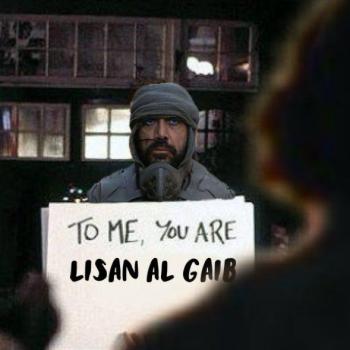Since I write about ancient and modern religious debates with such frequency, I expect some will assume based on the title that this post will be about something along those lines. It isn’t, although those controversies aren’t entirely unrelated to the relevance of my focus here, which is on the decision of yet another university (this time the University of Vermont) to eliminate its religion program along with a number of others, ceasing to offer majors and minors that are “low enrollment.” The administration and board of trustees there might well think that they are cutting “unnecessary/unprofitable expenditures” from their budget. They would probably add that, in an ideal world they would not take these measures, but sources of income constrain them. Yet they would not cut athletics, or maintenance or improvement of facilities such as housing, knowing that the whole reason students come to campus is more than just training for a future career.
Do you see the irony? They will refuse to cut things that are at best tangentially related to the educational experience of a few, and yet will cut as unessential things that are crucial and part of the reason for going to university for some, and crucial and part of the reason to going to university for every student including those who do not appreciate this point except with hindsight. If students and their prospective employers want nothing more than training in a bit of specialized knowledge and narrow skills for a specific profession, they will soon realize that paying expensive tuition that subsidizes athletics and maintaining a campus are “unnecessary expenditures” and take just what is deemed “essential” in modular form, whether in person or online. Where will short-sighted universities, who had a marketable treasure and cast it aside in the pursuit of what they thought their customers wanted and needed, be then?
There is a petition that I signed protesting the decision. Thousands have already added their voices. Will you? Here’s the link to the petition again. There is also an article just today in Inside Higher Ed with perspectives from the faculty at the University of Vermont. Below is what I added to explain why I signed:
I am a religion professor at another institution and so might seem to have a vested interest in maintaining my own field. However, I work in the career that I do because I am fully persuaded that for universities to train professionals to be competent in their careers, flexible enough to change careers when circumstances require them to, and thoughtful engaged citizens in the political and social life of their nation, universities and other educational institutions must continue to foster the study of the full spectrum of disciplines and fields represented by the liberal arts. Lawyers, doctors, and politicians who do not understand religion, business entrepreneurs who have not fostered creativity, and chemists and computer scientists who have not studied ethics all lack something important that is needed to provide what they and our society needs from those who pursue these professions. For universities to provide this, there need to be strong and vibrant programs that allow all students to take subjects like religion, and for some to minor or pursue a second major, even if relatively few pursue religion as their sole major. The notion a university can offer a meaningful experience by putting all its focus on certain popular majors deemed practical as pathways to specific careers offering attractive salaries is not merely short-sighted but profoundly misguided. No university that does not at least provide opportunity to become broadly educated, however specialized one becomes in a particular set of professional skills, is not worthy of the name.
Of related interest on the liberal arts, the humanities, and the relevance of being broadly educated to participation in a just and democratic society:
A call for papers for a conference on the humanities beyond the pandemic
https://thewayofimprovement.com/2020/11/10/what-do-americans-think-about-the-humanities/
Prioritizing Discoveries over Pathways and Outcomes
Provincializing the environmental humanities: An Islamic view
Scales of justice for environmental ethics: A reply to Hennessy and Hoesterey
The ‘New Map’ and the New Liberal Arts
Diversity and Inclusion Alliance
The Importance of Inequality Studies
https://thewayofimprovement.com/2020/11/17/barack-obama-and-ibram-x-kendi-on-american-politics/
Liberal Arts Institutions and Scaled Online Learning
Previously here on my blog:













